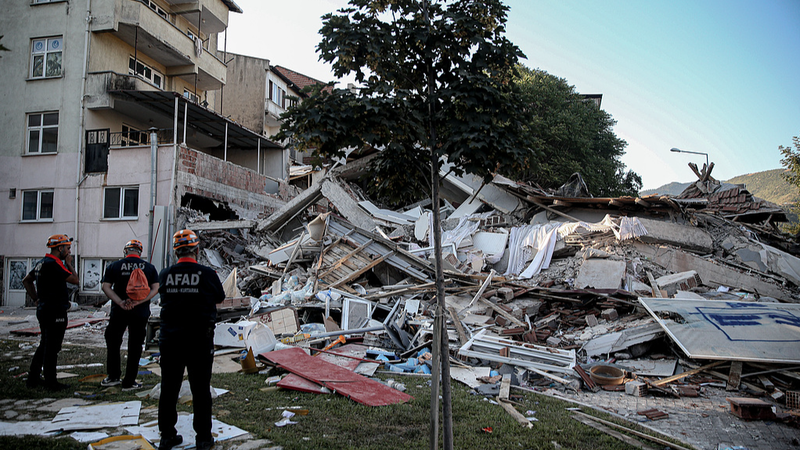Early Sunday morning, a magnitude-6.1 earthquake rattled Türkiye's northwestern Balikesir province, toppling 16 derelict buildings and injuring 29 people. The tremor, centered near Sindirgi, sent shockwaves 200 kilometers north to Istanbul, home to over 16 million residents.
Rescuers worked in silence, listening for any signs of life under the debris. An elderly woman died shortly after being pulled from a collapsed structure, while four others were rescued and are now recovering with non-life-threatening injuries.
Türkiye's Disaster and Emergency Management Agency reported several aftershocks, including a magnitude-4.6 jolt, urging residents and travelers to avoid damaged sites. In Istanbul, apps that send real-time alerts buzzed on smartphones, underlining how tech is reshaping disaster response.
President Recep Tayyip Erdogan extended his condolences and called for community support. Situated on major fault lines, Türkiye endures frequent quakes: a magnitude-7.8 tragedy in 2023 claimed over 53,000 lives and destroyed towns in the south.
For young global citizens, this event highlights the need for resilient infrastructure, data-driven early-warning systems and collaborative recovery efforts. Entrepreneurs and tech enthusiasts can explore innovations like AI-powered sensors and modular construction, while travelers and digital nomads should stay informed on safety protocols when exploring seismic hotspots.
Reference(s):
cgtn.com



